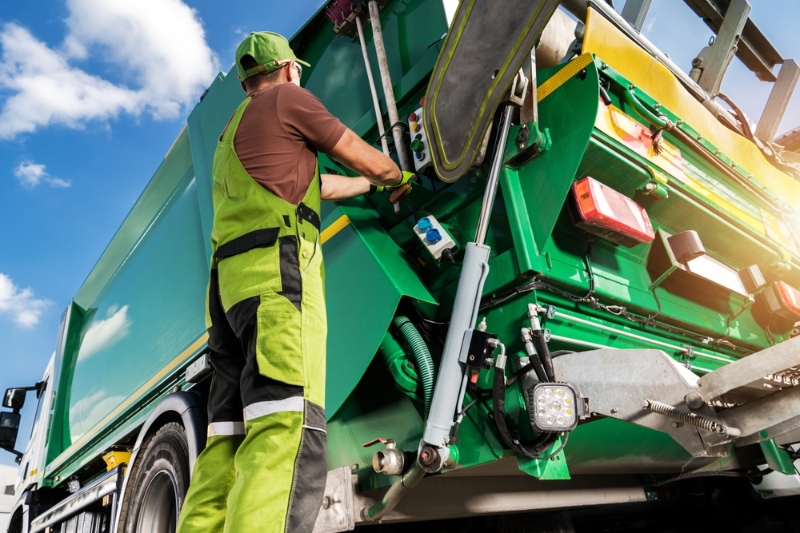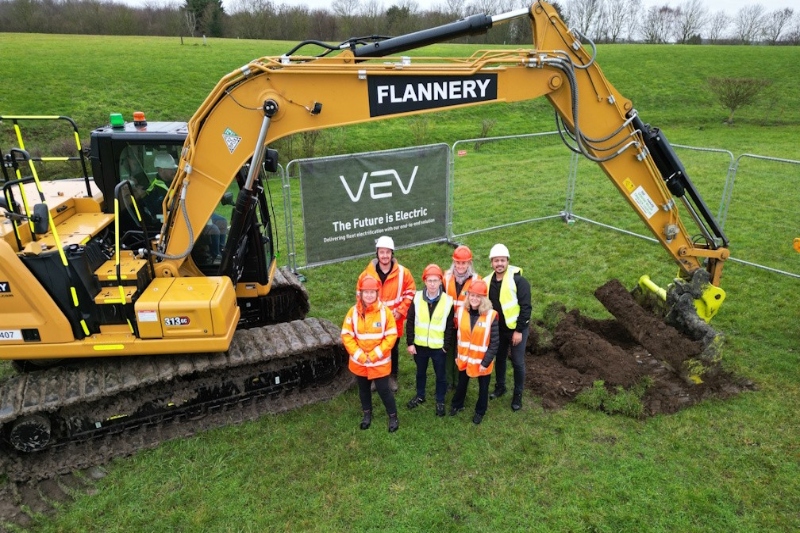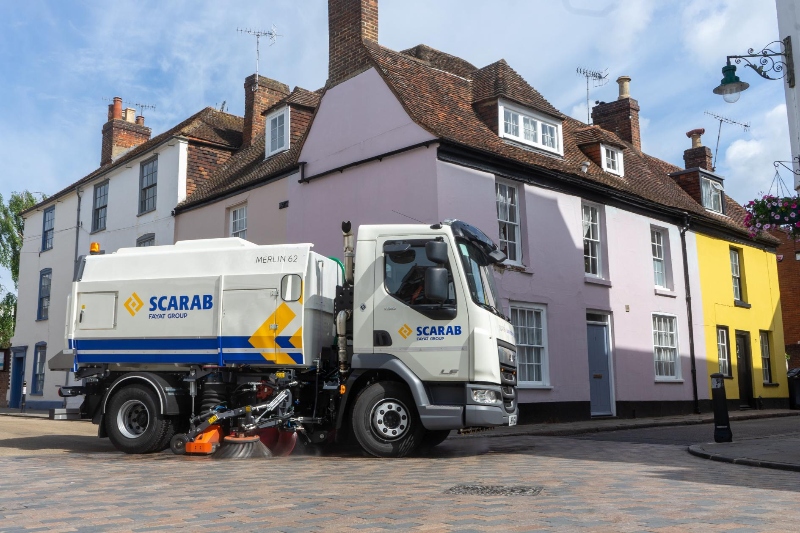A two-year study into the impact platooning trucks is likely to have in the UK will assess whether it can benefit the country's economy and road system, including its effects on safety, fuel efficiency, and congestion. Lotte Debell reports.
Richard Cuerden, of the Transport Research Laboratory (TRL), is the director of the project which is scheduled to begin this year. TRL will take the lead on the project with other partners contributing.
Richard said the objective is to run a holistic impact assessment that will look at the potential benefits to the UK.
'Could platooning reduce congestion? Can it deliver fuel savings to truck operators? There is talk of savings of fuel savings of up to 10%, but will this hold up in real-world trials? That's what we want to find out,' he said.
'All the evidence we have so far for platooning has come from demonstration projects in platoons of up to two trucks. These are projects run by engineers in ideal conditions. The technology has not yet reached the point where we can hand it over to operators to test over a period of months to assess the impact of its use in real-world conditions'
This impact assessment will help stakeholders, such as road and vehicle operators, understand what the likely future benefits will be, if indeed there are any. And, while this is primarily a trial of platooning rather than driverless technology ' the trucks will be controlled by drivers at all times ' there will be a degree of automation involved and the testing of this technology will also provide insights into how autonomous vehicles can be safely and systematically introduced to the road.
It is an ambitious aim and an expensive project but, Richard points out, this is vital research. He said automation is coming, whether we want it to or not but a recent study by the Institution of Mechanical Engineers showed that 66% of people would feel uncomfortable travelling in a driverless car at 70mph, and 50% believe humans make better drivers than computers. He says technology in the automotive industry is accelerating at a pace akin to the communications world a decade ago on the eve of the launch of the first iPhone.
'Ten years ago none of us had iPhones, none of us had tablets, and none of us had any idea that we could be as connected as we are today,' said Richard.
'Just imagine what might happen to the vehicle industry in the same time period. So, given that this is going to happen, this trial will start to answer some of the questions about how this kind of technology will work to ensure that it happens in a safe and coordinated way. And we also want to make sure that the UK's engineers and scientists are in a good position in the early stages to learn and gain from it as much as possible'
The project requires a significant degree of multidisciplinary working so TRL has put together a team of partner companies with a focus on exploiting and enhancing the skills and knowledge available in the UK to cement the country's skills base in this area.
'Our partners include DAF trucks, which are made in the UK, while another British company, Ricardo, is providing some of the technology to allow the trucks to platoon,' said Richard.
'Then we have DHL, because we need a big operator willing to work with us to run the trial on the operational side'
Other partners include Transport Systems Catapult, the UK's technology and innovation centre for intelligent mobility, which will bring additional understanding on the safety side; the Millbrook test track, where the vehicles will be tested; TNO, which is currently leading the Dutch platooning trials and will provide reciprocal representation to the UK and Dutch advisory groups; Costain, a strategic partner to Highways England, bringing an in-depth knowledge of the UK's strategic road network; and Apollo Vehicle Safety, for its knowledge and expertise on safety.
The project's clients are the UK Department for Transport and Highways England.
There are four distinct phases to the project and each one will have to be successfully completed before moving on to the next.
Phase one is to build the trucks that will take part in the trial. These will have all the systems currently installed on HGVs, such as front cameras, auto braking, and radars to help them stay in lane and maintain a safe distance from the vehicle in front, plus additional integrated systems, including wi-fi technology, that will enable them to platoon.
'Then the trucks go onto the test track and we can start to build up our experience and knowledge of how these vehicles work,' said Richard.
'We will start with a platoon of two and move up to three and observe how the trucks perform. Once we have this information, we will work with DHL to find routes that are suitable for platooning based on what we have discovered on the test track and our own knowledge of the motorway system, looking at statistics such as junctions, congestion, and incident rates'
Alongside the test track trials, TRL will conduct extensive off-road trials based on the training required for drivers of platooning vehicles.
'We will also carry out simulations to observe how other road users such as car drivers interact with platoons,' said Richard.
'The whole study is grounded in taking our time and there are lots of checks and balances in place to ensure we can proceed safely to the road trials'
Building a comprehensive safety case is the other key element of phase one, as the project cannot proceed to the next phase unless safety concerns are satisfied. This will assessed by an independent safety panel, which will look at evidence gathered in the initial phase to determine whether the safety case is good enough to proceed to road trials. If it isn't, the project goes no further.
Richard is keen to stress the emphasis on safety because a project like this will always give rise to safety worries. Organisations such as the AA and the RAC, for example, have expressed concern that platooning vehicles will obstruct the visibility of other road users at critical points such as junctions. And there have also been concerns over automation. However, these are largely based on a misunderstanding of how the project and platooning itself will work.
'Initial media coverage billed this a test driving autonomous vehicles, but that's not what this trial is about,' said Richard.
'Platooning trucks are very dynamic. All the work that has been done until now on platooning has been very fixed, very predictable, but in the real world platoons have to fit around other road users so they need to be dynamic'
When in a platoon, the decisions are made by the driver of lead truck. This driver is steering and accelerating. Drivers two and three are just steering.
'Trucks two and three will know what truck one is doing at all times and the drivers will see the road ahead as truck one's driver sees it. However, each of them can decouple from the platoon at any time. When the platoon comes to a junction, for example, the drivers will make a decision based on numerous factors, including time of day and congestion, about whether to stay in the platoon or to decouple. What the technology does is give them all the information they need to help them make that decision.
'In the future it may well be the case that the technology does it all for them but we are not there yet. And it could be that we don't see the kind of savings we expect in terms of fuel, because the trucks are not in platoons the whole time'
If the safety requirements are satisfied, the project moves into phase two and the trucks take to the road. When this is complete, TRL hands over to DHL to run the trial, and it is during this third phase that data will be collected on things such as fuel savings and safety.
Phase four will see the team write up the results, and Richard says that the project will be deemed a success if it is delivered on time ' by the end of 2019 ' and the evidence is good. But that evidence could be for or against platooning.
'This is a completely independent trial and if it reveals no benefits, that's what we will report,' said Richard.
'However, if we find that platooning could be good for the UK economy, that's when things will start to progress.
What the future of platooning might look like is another question, but it will certainly require a degree of cooperation between technology companies and operators to coordinate and link up vehicles.
'We could conceivably end up with a system whereby operators enter the details of their vehicles and their destination and the system digitally maps out routes and introduces trucks to platoons along their journey,' said Richard.
'I believe that the goods and haulage industry will start to become much more about information and connectivity than the vehicles themselves'
What this trial might mean for other types of vehicles is not clear at this stage, but a successful platooning trial and the oncoming automation of vehicles certainly poses some interesting questions for local authorities and their fleets. As Richard points out, a number of automation projects are already underway, all the major vehicle manufacturers are investing in this area, and vehicles like RCVS are ripe for automation.
At the current pace of change, by the time this trial ends, some of this technology might already be in use. Just like the communications industry on the eve of the smartphone revolution, there are big and exciting things ahead of transport.
It's very much a case of if, not when, these changes are coming, and how companies and operators can best take advantage.







